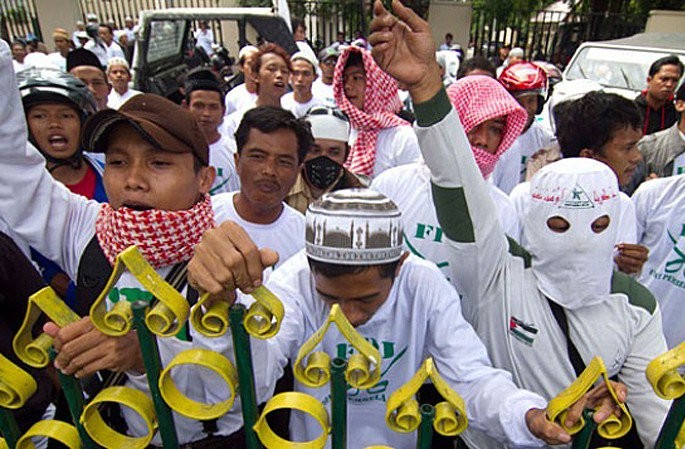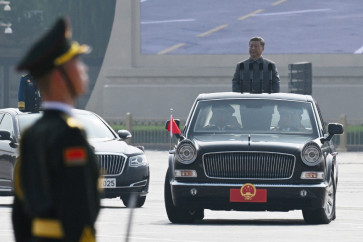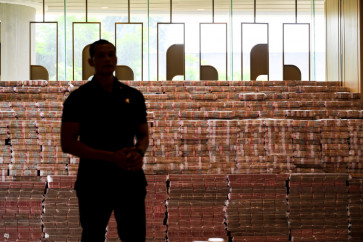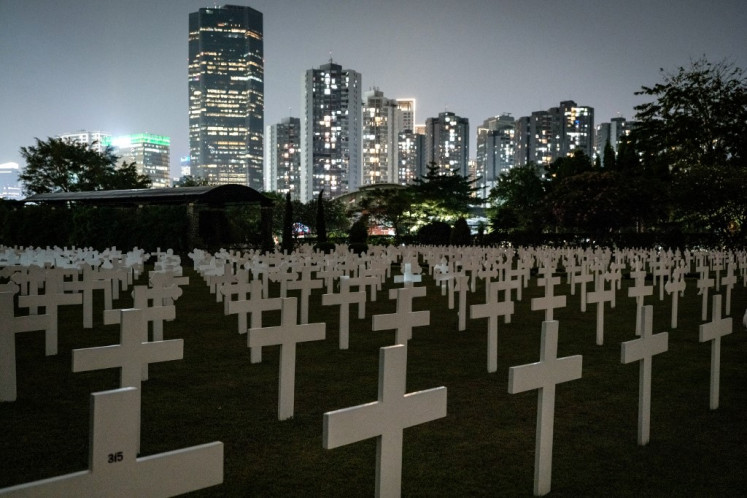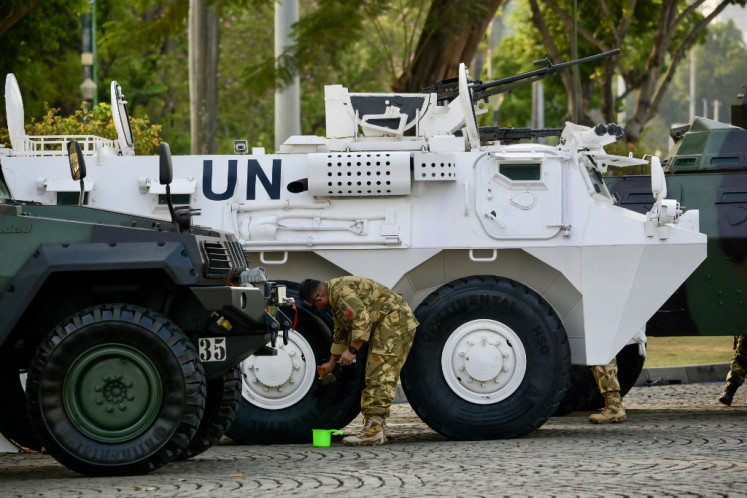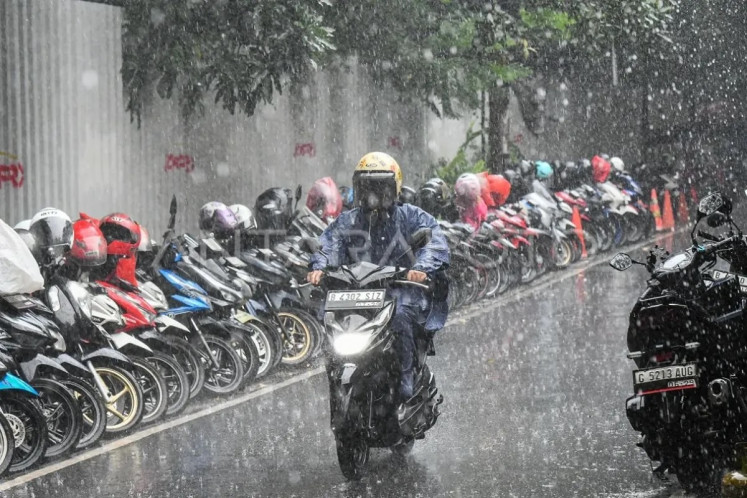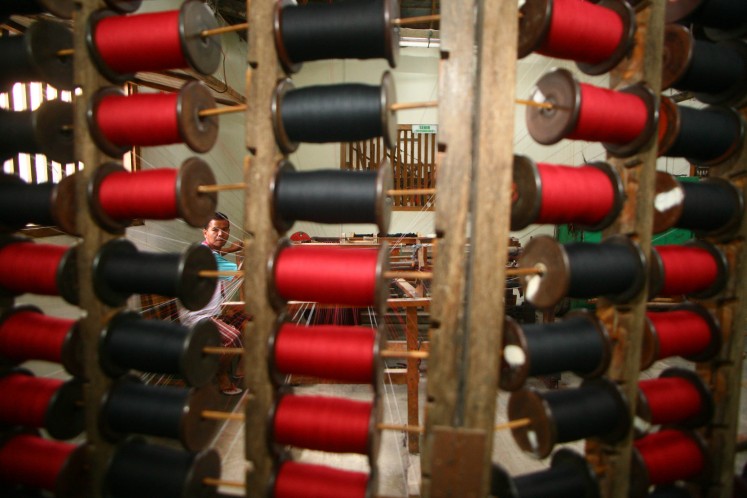Popular Reads
Top Results
Can't find what you're looking for?
View all search resultsPopular Reads
Top Results
Can't find what you're looking for?
View all search resultsFrom Trump to Indonesian political Islam
In short, Trump’s victory may be a wake-up call for populist dreams in Europe. For Indonesia, however, the dream has a distinct background.
Change text size
Gift Premium Articles
to Anyone
W
hen the populist Donald Trump won the United States presidency, as populism is on the rise globally, people began to wonder what impact it could have elsewhere in terms of such spirit.
Does it suddenly become relevant for Europe, as well as for Indonesian Islamic populists who have recently held mass rallies in attempts to threaten the state?
Some analysts have pointed out that Trump has exploited white supremacy and successfully championed frustrated working class sentiments vis-à-vis elitist-interventionist liberals.
In the same vein, the nationalist-xenophobic part of the establishment and the disappointed working class in the United Kingdom voted in favor of Brexit (the UK’s exit from the European Union) last June.
Open populism is a sign of upcoming spirit representing latent undercurrents, which manifest in certain times. It denotes forces and rhetoric instantly appealing to popular instincts and sentiments, including primordial identities, in particular to those population segments in disadvantageous social lives, without better access to the industrial structure and state institutions.
With them being ignored or humiliated, populist demagogue calls for new morals could arouse rising self-identity, nationalist pride and upward mobility expectations.
In short, Trump’s victory may be a wake-up call for populist dreams in Europe. For Indonesia, however, the dream has a distinct background.
The great popularity of the Christian governor of Jakarta, Basuki “Ahok” Tjahaja Purnama, who is an Indonesian of Chinese descent, closely associated with some corporations and supported by the middle classes, has worried populist Islamists.
His simple statement mentioning a Quranic verse has been maliciously misconstrued to provoke massive emotions and set off allegations of blasphemy to prevent him from taking part in the gubernatorial elections.
What is significant, though, is this has led the political Islamic establishment — the Indonesian Ulema Council (MUI) — to support the mass protest rallies initiated by a small vigilante group, the Islam Defenders Front (FPI), led by Rizieq Shihab.
Many immediately suspected the hands of former president Susilo Bambang Yudhoyono and retired general Prabowo Subianto, who had been politically close to some Islamic groupings in the past and now supported Ahok’s competitors.
President Joko “Jokowi” Widodo responded as never before by demonstrating his authority as supreme commander, posing with the police, the marines and the Army special corps and ordering them to maintain the unity of the nation.
The root of the matter, however, goes back, partly, to the early days of the republic. Shortly after the Nov. 4 rally, Munarman, a former human rights lawyer-turned FPI leader, claimed Indonesian Islam had too often been betrayed since the Jakarta Charter, in which the state mandated the Muslim requirement to practice Sharia “was deleted [from the Constitution] on Aug. 18, 1945”.
In his view, typically, it was “the secular forces” that time that again had cheated Islam and Indonesia’s Muslim majority despite “its key role in 1945 [the struggle for independence], 1965 [destroying the communists] and 1998 [the fall of Soeharto]”.
One member of an Islamist party recently complained, “Throughout the New Order and after, we have always been a minority of second-class citizens, haven’t we?” With such rhetoric, they called on the masses to be ready for syuhada (martyrdom) in future rallies.
Munarman’s splendid demagogy reminds us of political Islam with its subjectively painful position as a minority with, theoretically speaking, majority aspirations, yet continually unable to satisfy them. He likened Indonesia metaphorically to a car with secular forces being the driver and Islam merely “pushing the car”.
Indeed, the Dutch sociologist WF Wertheim once called Indonesian Islam “a majority with minority mentality” (1959). Today we should perhaps mark them as a minority with a false consciousness of false majority aspiration — a delusion — since only a real majority with the same ideology could possibly achieve Sharia objectives.
Now, however, the conservative MUI, whose leaders include influential figures of the two biggest Islamic mass organizations, Nahdlatul Ulama (NU) and Muhammadiyah, have joined the vigilante group to shape a greater configuration of groups with the dream of being a majority. This should not be taken lightly. It may be a greater driving force to challenge the government.
Whatever Trump’s effect globally and on Indonesia (if any), Jokowi has to maneuver even more cautiously toward both general political Islam and the military.
New rightwing populism, because it is generally non-violent, is sometimes called “fascism with a human face”. Once the rising populist gambit of identity politics proves to work broadly and profoundly, it should put all sides into a new agenda.
Jokowi has already approached representatives of the MUI and the two biggest Islamic mass organizations, as well as 17 other Islamic groupings. Earlier, in a Cabinet reshuffle, he tactfully removed his closest adviser, the Christian retired general Luhut Pandjaitan, from his key position as political Tsar.
Given the new political constellation that is taking place, the President might be tempted to give more, rather than less, space to the military, and less and less to concede to the growing strength of political Islam. Either way, it is a threat to shrinking pluralist and democratic values.
---------------
We are looking for information, opinions, and in-depth analysis from experts or scholars in a variety of fields. We choose articles based on facts or opinions about general news, as well as quality analysis and commentary about Indonesia or international events. Send your piece to community@jakpost.com. For more information click here.

